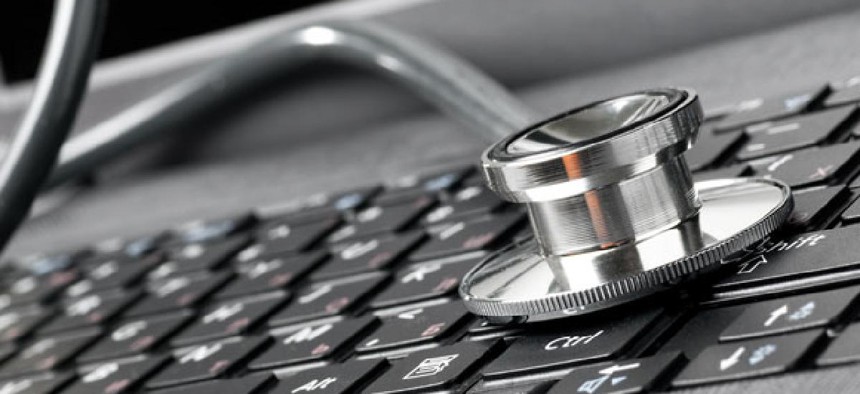The Robot Will See You Now

Shutterstock.com
Are doctors necessary? Just how far might the automation of medicine go?
Harley Lukov didn’t need a miracle. He just needed the right diagnosis. Lukov, a 62-year-old from central New Jersey, had stopped smoking 10 years earlier—fulfilling a promise he’d made to his daughter, after she gave birth to his first grandchild. But decades of cigarettes had taken their toll. Lukov had adenocarcinoma, a common cancer of the lung, and it had spread to his liver. The oncologist ordered a biopsy, testing a surgically removed sample of the tumor to search for particular “driver” mutations. A driver mutation is a specific genetic defect that causes cells to reproduce uncontrollably, interfering with bodily functions and devouring organs. Think of an on/off switch stuck in the “on” direction. With lung cancer, doctors typically test for mutations called EGFR and ALK, in part because those two respond well to specially targeted treatments. But the tests are a long shot: although EGFR and ALK are the two driver mutations doctors typically see with lung cancer, even they are relatively uncommon. When Lukov’s cancer tested negative for both, the oncologist prepared to start a standard chemotherapy regimen—even though it meant the side effects would be worse and the prospects of success slimmer than might be expected using a targeted agent.
But Lukov’s true medical condition wasn’t quite so grim. The tumor did have a driver—a third mutation few oncologists test for in this type of case. It’s called KRAS. Researchers have known about KRAS for a long time, but only recently have they realized that it can be the driver mutation in metastatic lung cancer—and that, in those cases, it responds to the same drugs that turn it off in other tumors. A doctor familiar with both Lukov’s specific medical history and the very latest research might know to make the connection—to add one more biomarker test, for KRAS, and then to find a clinical trial testing the efficacy of KRAS treatments on lung cancer. But the national treatment guidelines for lung cancer don’t recommend such action, and few physicians, however conscientious, would think to do these things.





